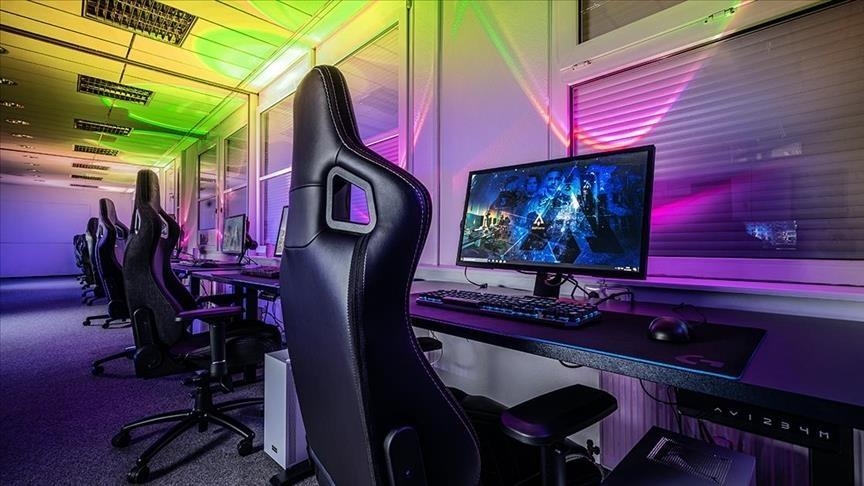Gaming blurs line between real life and virtual world
Psychologists and players say games have become cultural anchors and emotional escapes reshaping daily human connection

ANKARA
Video games were once considered light entertainment or child’s play, but today they’re cultural institutions shaping careers, social habits and even psychological well-being.
With augmented reality, the metaverse and virtual platforms growing rapidly, the divide between gaming and real life is narrowing, and experts say the shift is just beginning.
Creating his 'dream game'
Eric Barone -- known as ConcernedApe and the creator of the indie hit Stardew Valley -- told Anadolu he started developing games after earning a degree in computer science and struggling to find work. Influenced by his childhood favorite Harvest Moon, he released Stardew Valley in 2016.
“I think the world is so chaotic,” said Barone. “You’re looking for something that’s de-stressing, not more stress.”
He called gaming a “comfortable escape” for people overwhelmed by daily life and noted that “as the world gets crazier and crazier,” the demand for such escapes keeps growing.
From racing games to real tracks
For Jann Mardenborough, that escape became a profession. He began playing Gran Turismo at age 7 and eventually won the GT Academy, a competition which turned gamers into real-life drivers. His gaming skills landed him a professional racing career.
“I was proof of that concept,” Mardenborough said. “I’d done nothing, just PlayStation in my room with a dream of making it into the sport I love.”
He added that his journey required “an obsessive level of determination,” especially as a pioneer.
“Those who come after me won’t have to try as hard,” he said, noting that the pathway from games to sports has now been proven.
Blurred line between games and reality
As virtual reality and augmented reality become mainstream, the difference between games and real life continues to erode. Some games, initially designed as stress relief, now cause stress -- yet many still prefer them over daily responsibilities.
Mardenborough said gaming should not replace real-world experience but can complement it.
“I love real life and this reality,” he said, describing games as tools for entertainment or skill development.
But he acknowledged that many young people now expect “constant validation,” both online and in gaming environments, which affects their social lives offline.
Games now deeply embedded in real life
Research psychologist and author Rachel Kowert said gaming began as simple entertainment but has since evolved into a dominant cultural force.
“Pokemon Go is a really good example of kind of augmented reality games, where the game is really taking you out into the real world,” she said.
Kowert described games as a “cultural touch point,” now shared “across generations, across groups, across communities.” She noted that roughly one-third of the global population plays games, underscoring the scale of the shift.
Barone expressed concern about the erosion of the boundary between digital and physical life. He warned that doing everything through screens “without real human interaction” can have negative social effects. While not advocating for people to abandon gaming, he urged reflection.
“It’s important to be aware of what these things are doing to you.”
This is the first story in Anadolu’s five-part series “From Entertainment to Addiction: The World of Gaming,” which explores how video games are evolving, the psychology behind their appeal, and the consequences for real-world behavior and connection.








